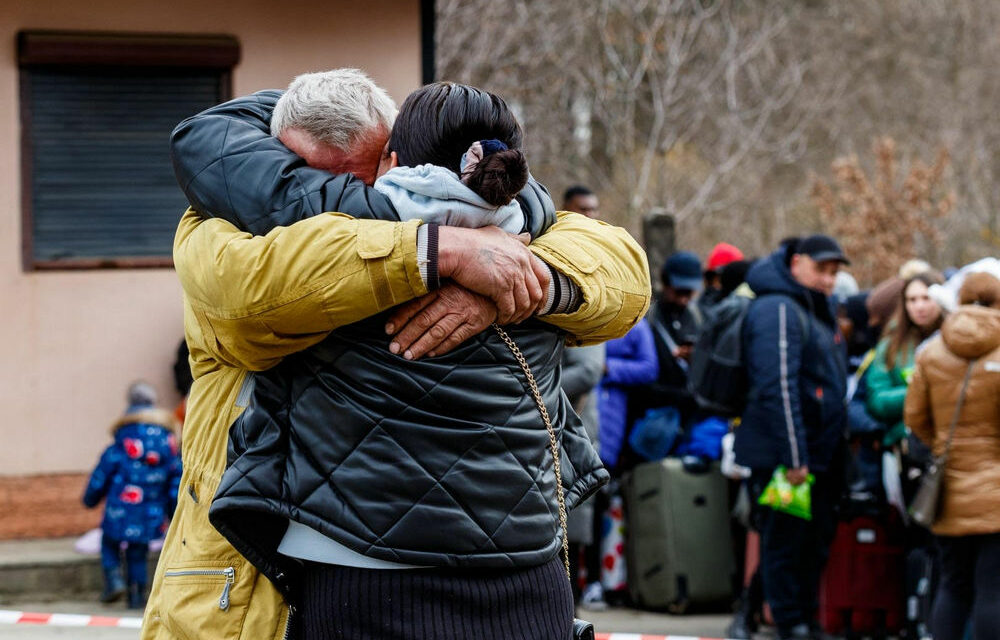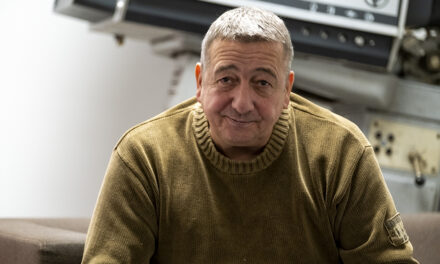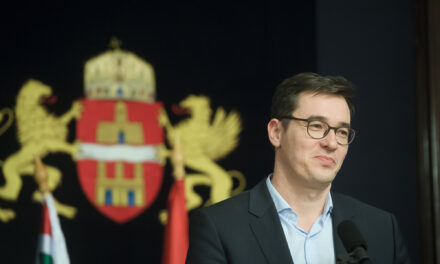"Man experienced as much darkness around him as he had never experienced before." – interview with a woman who stayed in Transcarpathia
The entire world is following the events of the Ukrainian-Russian conflict with particular interest. For us Hungarians, the fate of Subcarpathia is the most important thing in relation to the war, since our compatriots living there are just as important as any other Hungarian people. From the sea of propaganda and fake news flooding the Internet, it is difficult to filter out how our fellow Transcarpathians actually experience this terrible situation. For this reason, our paper conducted an interview with a woman living in a small Hungarian village to introduce us honestly and openly into the daily life of those who remained in Transcarpathia.
- What kind of reaction did the outbreak of the war provoke from you, your family, and your immediate environment, and how do you look back on it one year from now?
Of course, the first feeling that came over everyone was a terrible degree of fear and vulnerability. The news came suddenly, nobody knew what to do, where to go and whether this story was real. People were afraid and panic broke out. We didn't know how long the war would last and whether we were in danger. We had to decide very quickly whether to leave our whole lives and everything we had built up here - because it was immediately expected that the borders would be closed soon - or to stay in our homeland, trusting in the sustaining power of the Good Lord. Looking back, we have already learned to make decisions much more calmly and we have already learned to deal with the everyday difficulties that we have to face every day.
- How did you and your family decide?
Despite the enormous panic, my husband and I decided to stay at home. Like us, my daughter wanted to stay in Transcarpathia. My son and our grandchildren, like most young people, thought it was safer now to leave the country while there was still a chance. It is terrible that families are being torn apart and Transcarpathia, which is already struggling with increasing emigration, has received another bleeding wound.
- Is it important that, despite the war situation, those who can stay in their homeland?
I believe that God did not place us in Transcarpathia by chance. This is our country. We cannot run away from problems. I can't condemn those who left the country either, it's understandable from every point of view, but we still felt that we had to deal with it here. Our hope is in God
there is, and it is very important that there are people who stay so that we can keep this hope alive and trust each other that there is a future in Transcarpathia.
- How could one imagine the public mood that currently prevails in the Transcarpathian Hungarian communities?
The streets are stagnant with emptiness. You hardly see a man or a young man. Fear and uncertainty can be seen on people's faces. Everyone is uncertain about what to expect from tomorrow. Does something happen that we don't expect. The men who did not leave the country are hiding and most of the time they don't even dare to leave the house. Wives are afraid of their husbands, mothers are afraid of their sons, because any conscripted man can be drafted at any moment. There is a regular police and military presence on the public roads and they also patrol the smaller villages, looking for those men who can still be taken away. People are trying to inform each other in different ways about where they should not go now, where the soldiers are stationed by handing out summonses. A man has to think carefully about every step he takes. Can you go shopping in town? If your child is sick, do you dare to get in the car and take him to the hospital? All of this is very risky, since we cannot know where a soldier will appear with a "narrative" in his hand. They give the summons to happy and unhappy. It also happens that a sick person who is completely unable to fight gets it. Thank God, no one from my environment was taken, and we don't even hear horror stories about Hungarian people being abducted, despite the fact that you can see a lot of such things in the media.
The community of the local reformed church provides a refuge in difficult everyday life. Here we can meet our brothers and sisters, encourage each other and pray together. Together with the community, we visit the elderly who are left alone in a cold house, or are sick and unable to take care of themselves. We bring them food packages, for which we are very grateful to all those who send help in any form to Transcarpathia.
- What is the biggest challenge in everyday life?
The war situation presented us with a terrible challenge when the electricity suddenly started to be turned off . The man experienced such darkness around him as perhaps never before. We had very little electricity for a very long time. There were weeks when there was electricity for only 6 hours out of 24 hours, mostly at night. You had to adapt to the situation. Our biorhythm has changed. We get up at night to do our daily activities. I had to seize the moment,
when, for example, we can put a batch of clothes there to wash. For many people, the continuous power outages caused heating problems. We had to collect water to have something to drink and something to wash with. You don't think about these things when you just turn on the faucet and the water flows. We learned to appreciate every little thing. The lighting is sometimes provided with candles, sometimes with battery lamps, of course if we have arrived to recharge. Not every family can afford power generators. On the one hand, there is a lack of it on the market, and on the other hand, unrealistic prices are being asked for it in Ukraine.
The positive side of the power outages is that instead of hiding in the television and mobile phone, conversation and human relations have gained space. The Good Lord can turn even the worst things to our good.
Prices are rising daily, you have to pay close attention to what you can afford. An average pension is currently HUF 20,000 hryvnias. A total of 10 kg of meat can be bought from this, and the person has not yet paid his bills, nor his medicines, nor been able to put on a warm jacket or boots.
- Will the families who left the country return to Transcarpathia if the situation improves?
There were families who left, but could not cope elsewhere and returned home after a few months. There are those who plan to come back and there are also those who see no more opportunities in Transcarpathia, so they continue to imagine their lives abroad. I am sure that everyone misses their homeland and no one will forget where they belong. I hope that as many Transcarpathian hearts as possible will find their home again and together, with common strength, Transcarpathia can once again become an alternative to a stable life.
- What would you say to those who had to leave the country and what to those who stayed at home?
Of course, each family decides for itself where it feels safe, and this cannot be criticized in any way. I would like to tell those who left that we love them and are waiting for them to come home. And for those who are at home, I wish you a lot of hope and perseverance. We all believe that the gracious hands of God will keep us even in these difficult times.
We, who are on the other side of the border, also have to deal with many difficulties on a daily basis, but we cannot forget our Transcarpathian compatriots. Although our countries do, a nation cannot have borders!
Author: BMV
Photo: Fotoreserg













